Legs, balls and luck: Taking on Deceuninck-QuickStep at the Tour of Flanders
QuickStep alumni Nuyens, Vandenbergh and Knaven on their former team
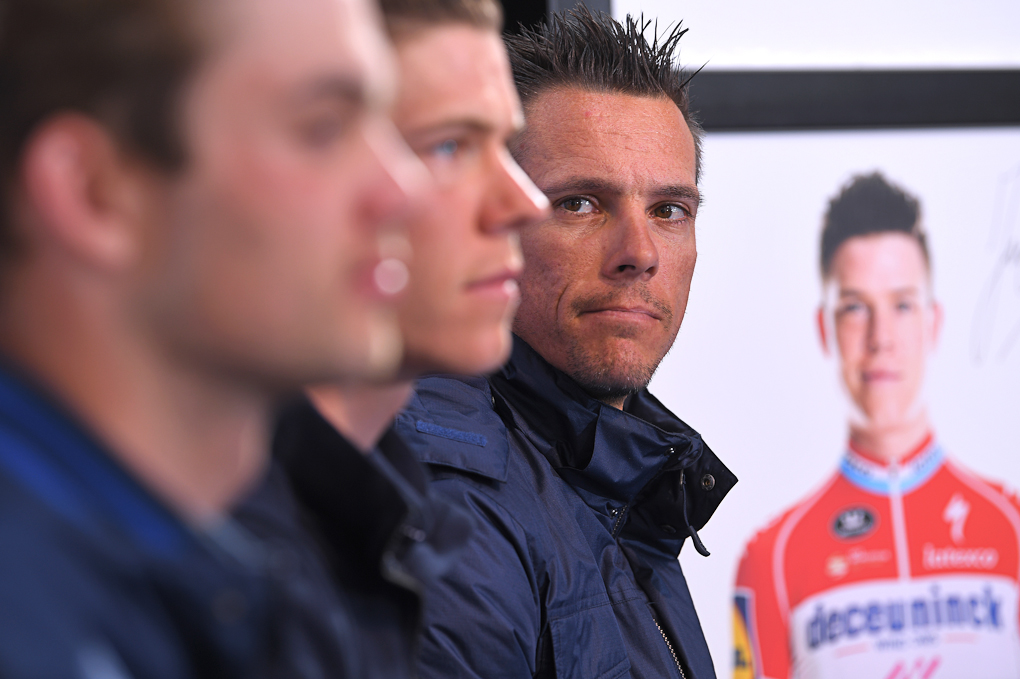
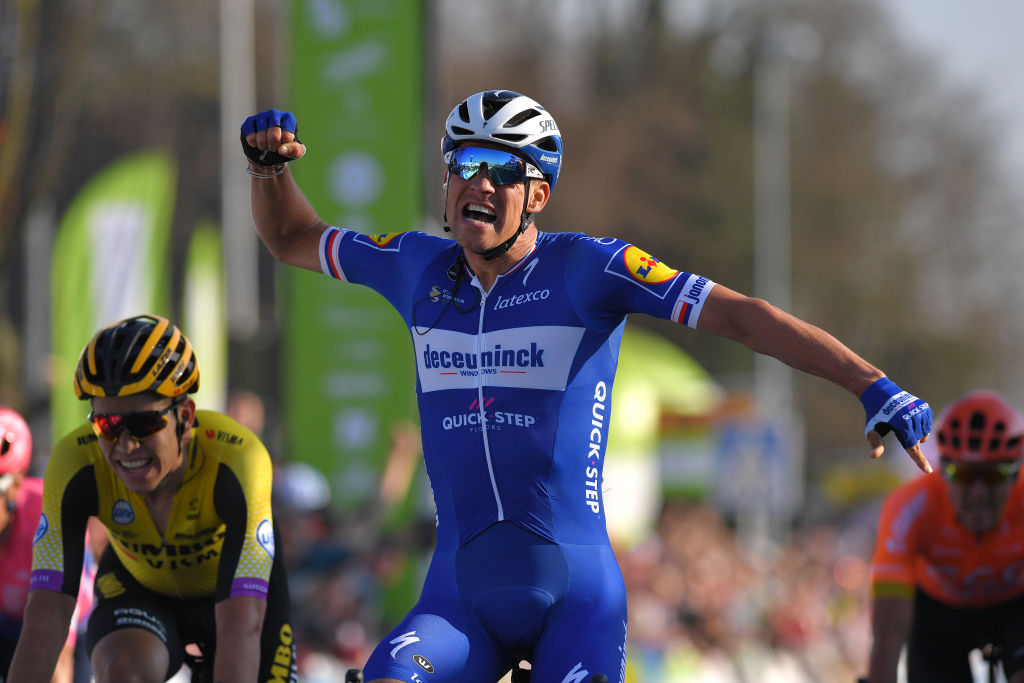
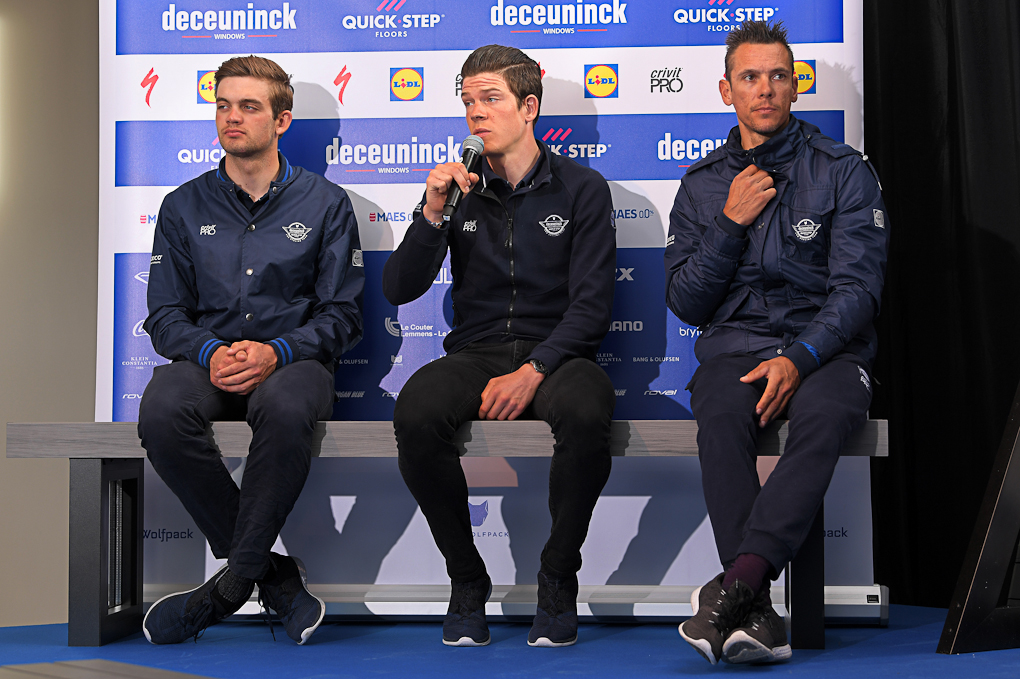
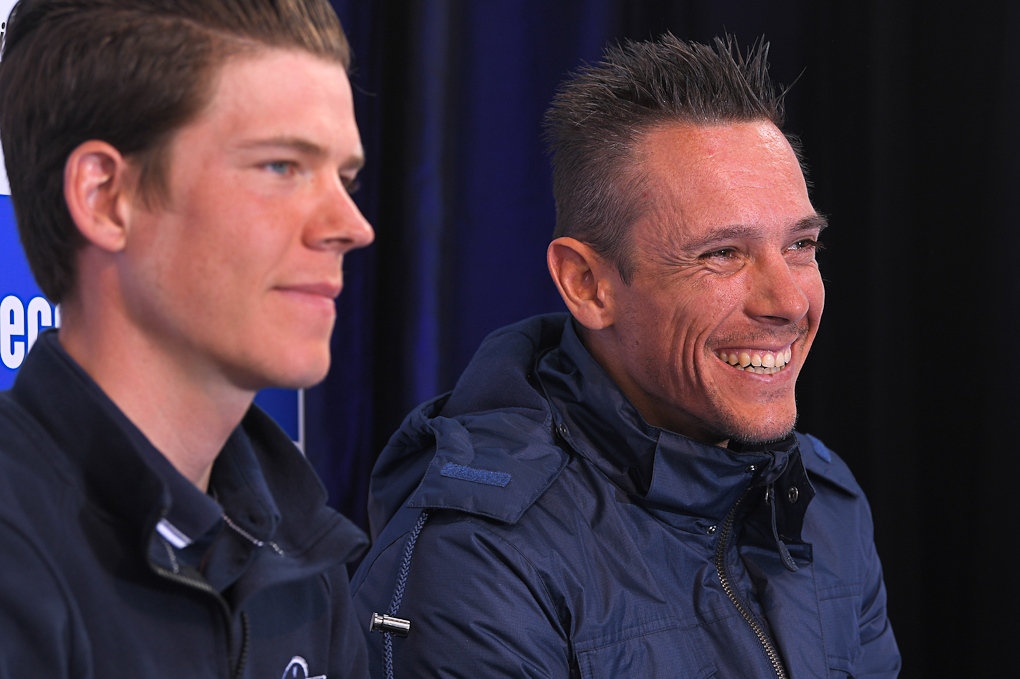
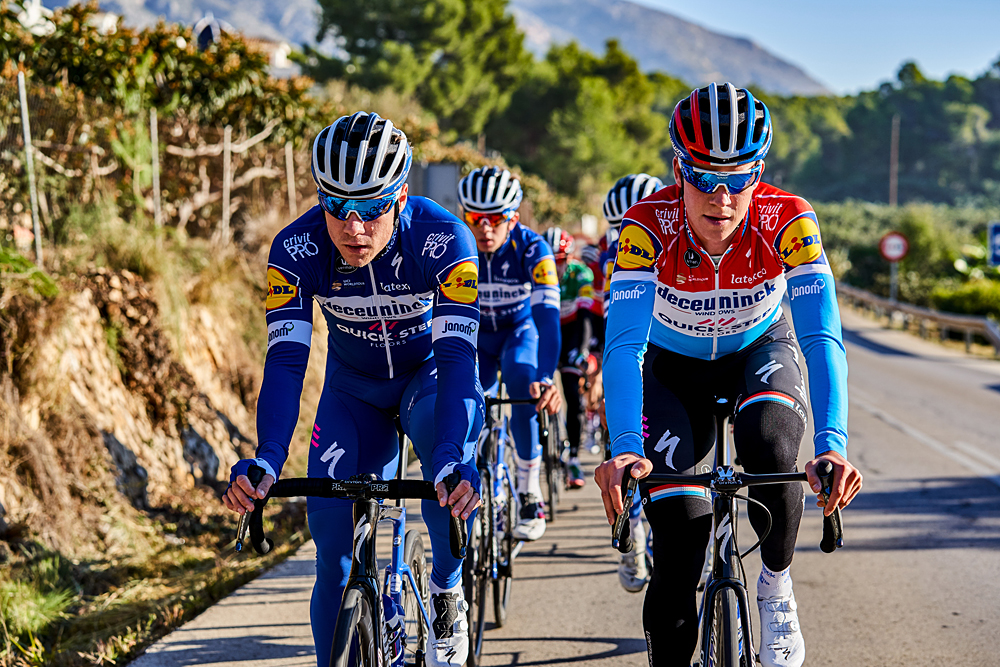
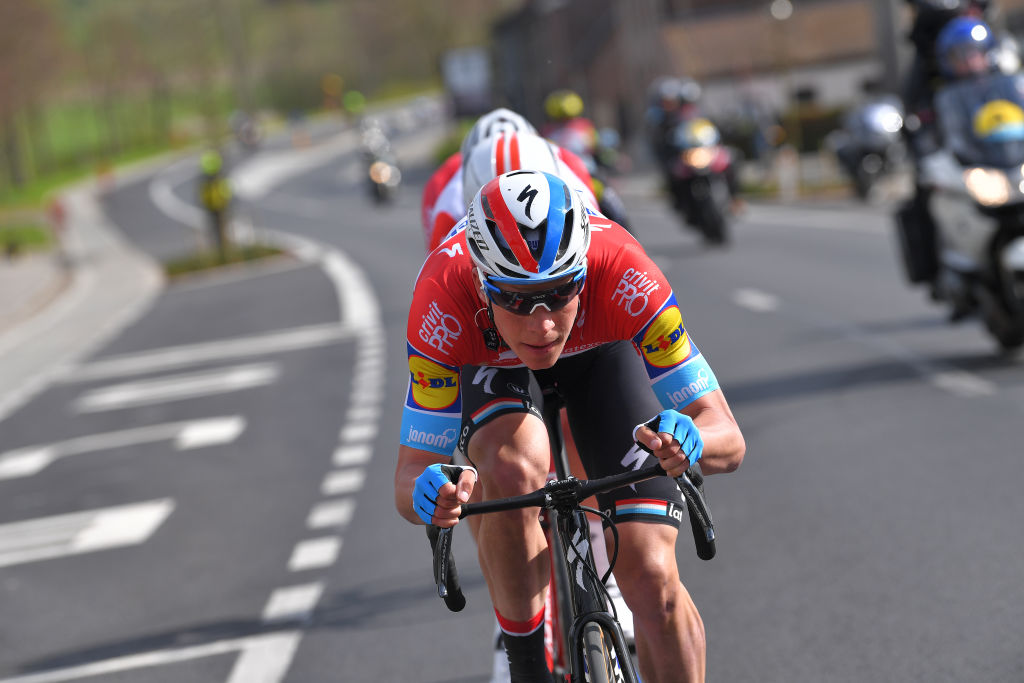
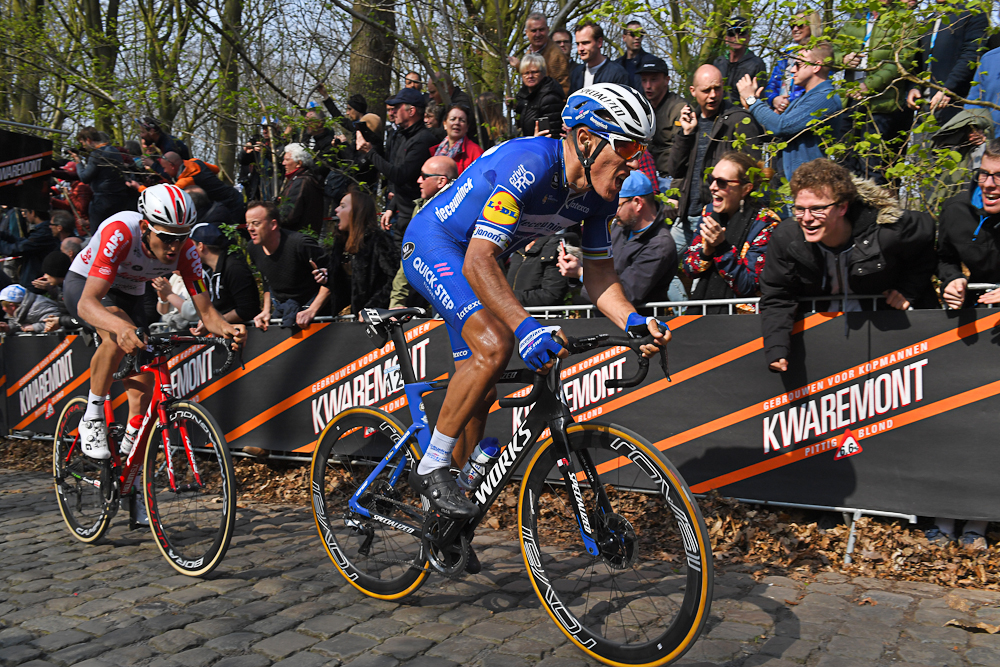
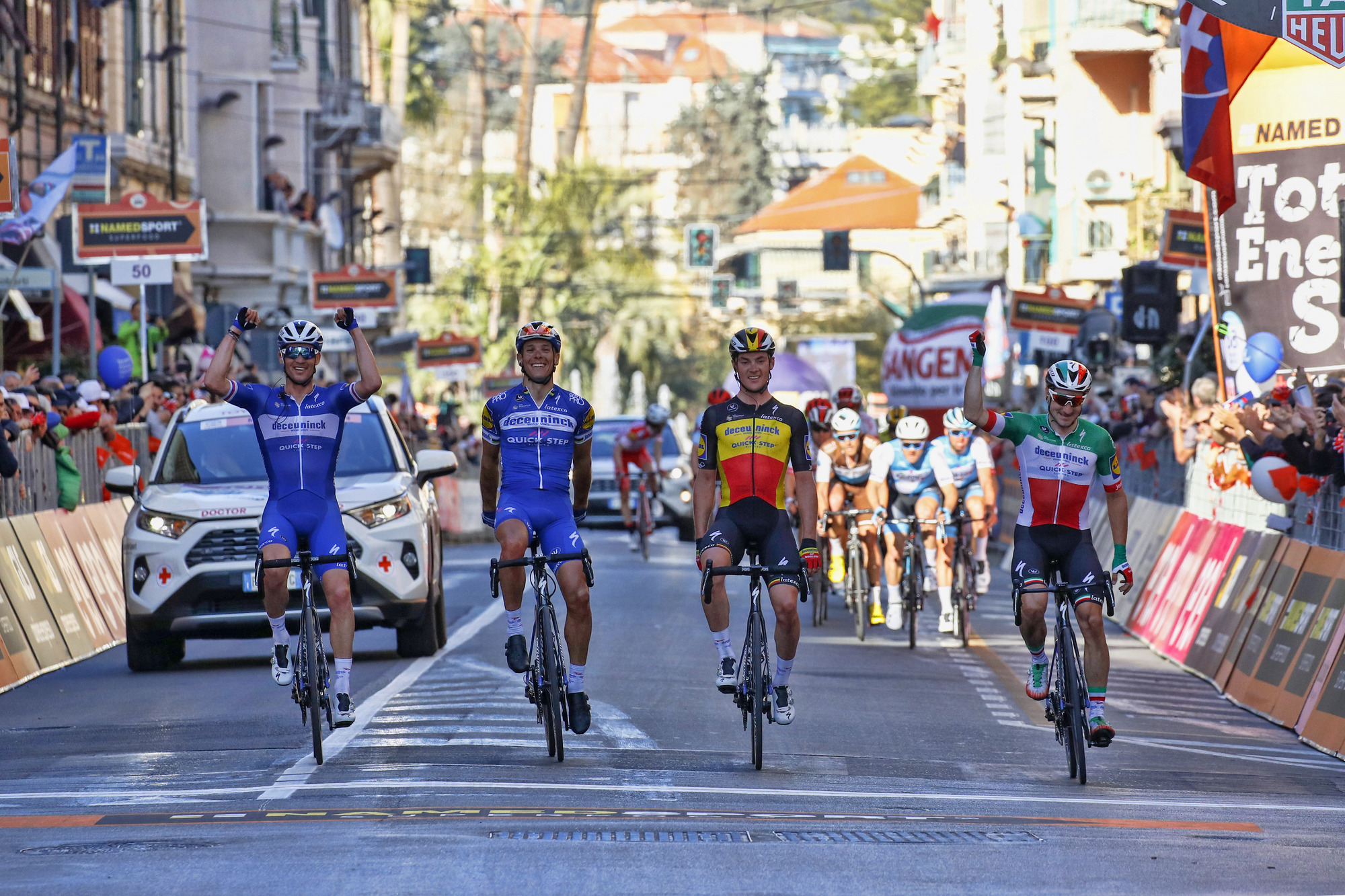
The names on the jersey and the riders wearing them have varied over the years, but the question seems to recur just about every time the Tour of Flanders rolls around. After a run of success that has seen Deceuninck-QuickStep rack up victories in Omloop Het Nieuwsblad, Kuurne-Brussel-Kuurne, Strade Bianche, Milan-San Remo and the E3 BinckBank Classic, the conundrum facing the 2019 Ronde peloton is a well-worn one: how do you beat a team with so many potential race winners?
Since the 1990s, Patrick Lefevere's teams have been the standard bearer at the Tour of Flanders and Paris-Roubaix, rather like the New England Patriots in the NFL. There are years when riders from other teams produce remarkable individual performances to exceed their benchmark – most notably Fabian Cancellara in the early part of this decade – but no collective has matched the consistency and success of QuickStep on the first two Sundays in April.
Philippe Gilbert, Yves Lampaert, Zdenek Stybar and Bob Jungels will all set out from Antwerp on Sunday carrying an equal share of the responsibility to claim Ronde victory for Deceuninck-QuickStep. Cycling history is littered with examples of teams riven by internal rivalry, but some way, somehow, Lefevere's squad has repeatedly managed to tread the fine line between healthy intramural competition and outright conflict.
Nick Nuyens experienced the balancing act first-hand when he raced for QuickStep from 2003 to 2006. He smiles at how the team's code of loyalty has been commoditised in recent seasons, but the philosophy behind it, he says, is genuine.
"What I see is something I recognise. The 'Wolfpack' name is also marketing, of course, but it is just like that and it works," Nuyens tells Cyclingnews. “It worked 15 years ago and it’s still working. Patrick Lefevere has for years managed to have team full of top riders who all want to work for each other and it’s not as easy as it seems.
Individual ambition can divide a team as readily as unite one, but Lefevere appears content to encourage personal goals so long as they serve the common purpose. After Stybar's E3 BinckBank Classic victory, for instance, he gently chided Lampaert and Gilbert's lack of success to this point, a timely reminder a week out from the Ronde. When a reporter recounted how Lampaert said everything the team touched turned to gold, Lefevere quipped: "Yves himself is turning gold into something." All part of the process, Nuyens suggests.
"They all want to win these races. When you're in a good team you have an advantage, but sometimes it doesn't seem like that, when you have good legs and a teammate is up the road in front of you. But maybe the next week it's the opposite, and that's how it works over there," Nuyens says.
Get The Leadout Newsletter
The latest race content, interviews, features, reviews and expert buying guides, direct to your inbox!
"I've experienced it myself and I can't really explain it. It’s just that everybody wants to show he’s worth his place and he knows he can do that by doing his job 200%, by not acting as an individual but thinking about the team. When you do something for a teammate, he will give you something back sooner or later."
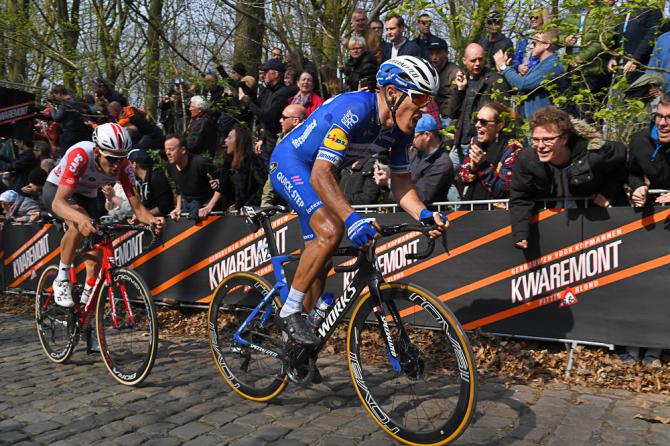
Anticipating the moves
Servais Knaven won the 2001 Paris-Roubaix when he led a clean sweep of the podium for Deceuninck's forerunner, Domo-Farm Frites. Now directing Team Sky's Classics offensive, few are better placed than the Dutchman to ponder how to defy Deceuninck-QuickStep’s four-pronged offensive.
"It's super difficult to answer that question. The same question is 'how do you beat Team Sky in the Grand Tours?' and no one has a clear answer to that either. It is hard and they are the favourites," Knaven says.
"You need a strong collective and you can't be afraid to go early and do something that people think is stupid, but that at the end turns out to be really smart. I think you need to ride a bit more on instinct. If we all wait until the last time up the Kwaremont in Flanders or the Carrefore de l’Arbre in Roubaix, it’s probably already too late."
Last Sunday's Gent-Wevelgem was a case in point, where Jumbo-Visma, Trek-Segafredo and Bora-Hansgrohe split the race in the crosswinds in the opening hour, leaving just one Deceuninck-QuickStep rider – domestique Tim Declercq – in a front group of 20. It was, however, testament to Deceuninck's depth that they had the strength to compensate for that error and pull themselves back into contention ahead of the finale, only for Elia Viviani to get boxed in during the finishing sprint.
Viviani was the team's designated leader at Gent-Wevelgem but deciding who sacrifices himself for whom would be rather less obvious should a similar scenario arise at the Ronde, as former QuickStep rider Stijn Vandenbergh, now of AG2R La Mondiale, points out.
"If a group goes away with no QuickStep rider, and there are two or three of them behind, it will be difficult to make a decision to say 'OK, you ride for me.' I think then the team director of QuickStep will need to make a fast decision and not wait," Vandenbergh says. "Yves wants to win a Classic, Gilbert wants to win a Classic… They have three or four guys who want to win, whereas we have a huge mentality for one goal, Oli [Naesen]. It can be difficult sometimes."
Off the top of his head, however, Vandenbergh can only recall one instance in his time where QuickStep leaders obviously tripped over one another's toes in a finale. "One time I was in front with Stybar and he attacked on the wrong moment and there was a little bit of miscommunication," he said. " was angry afterwards because he was more thinking about his own success than the team, and he attacked behind me. But that was only one time. It's a good group, QuickStep.”
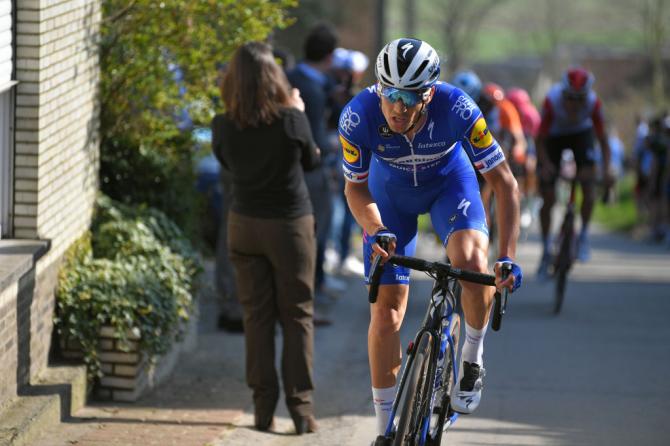
Harder to beat without Boonen?
In years past, the team was quarterbacked by an obvious leader; first Johan Museeuw and then Tom Boonen. The current iteration has a rather flatter leadership structure, with Gilbert, Lampaert, Stybar and Jungels all setting out from Antwerp as part of a spread offense that proves mightily difficult to defend against.
"In my time when I was at QuickStep, there was of course Boonen who was really outstanding, but I don’t think at this moment they have a Boonen. No, they don't have a Boonen," says Nuyens, now managing Roompot-Charles. "That's what is a little bit different now to my time. They are all good riders, there is not that one big, big guy who is really outstanding."
At least one Classics contender earned the derisory nickname of 'Shadow' for his penchant for marking Boonen on April Sundays, but that task is rather more complex now that Deceuninck-QuickStep operates without a strictly defined hierarchy.
"You never know which card they will play now, because they don’t have a guy who is the fastest one in the race," says Nuyvens. "OK, they're all pretty quick, but in the next race, they can always go with a different guy up the road, and I think that makes it more complicated to beat them."
Nuyens, of course, achieved that feat in the colours of Saxo Bank at the tumultuous 2011 edition of the Tour of Flanders, which saw the main contenders come back together after the wax on Fabian Cancellara’s wings melted at the base of the Muur. The 'Sniper' managed to slip away on the run-in to Meerbeke in the company of Cancellara and QuickStep’s Sylvain Chavanel, before picking them off in the three-up sprint.
During his time in QuickStep blue, Nuyens benefited from the team’s numerical advantage to win Omloop Het Volk and Kuurne-Brussel-Kuurne, but from a tactical standpoint at least, racing – and winning – as Saxo Bank’s lone leader was more straightforward.
"It was less complicated for me to go for the win at Saxo Bank than at QuickStep, because Boonen was a better rider than I was," Nuyvens says frankly. "I still had the ambition to win Flanders, though, and I thought maybe I should go to a team where I could be the only leader. In 2011, I knew the way they were riding, and they played actually the same cards in 2011, with Chavanel and Boonen, as they play now, but it worked for me."
Nuyvens anticipates the next question before it arrives. There is, he explains, no template for beating Deceuninck-QuickStep. Would that it were so simple. "No, there is not a certain secret to beat them," Nuyens grins. "You just need the legs, you need balls – and you need some luck."
To subscribe to the Cyclingnews podcast, click here.
Sponsor message
Born in the Italian Dolomites, Sportful has been making athletes faster, more efficient and better protected since 1972. Sportful has a rich and successful racing history; optimising performance for athletes who have gone onto win Grand Tours, one-day classics, and the World Championships.
Sportful leads the market with innovative and technical apparel so you can experience those unforgettable moments, your very best days on a bike. For more details visit Sportful.com and follow the ride on Instagram @sportful.


Barry Ryan was Head of Features at Cyclingnews. He has covered professional cycling since 2010, reporting from the Tour de France, Giro d’Italia and events from Argentina to Japan. His writing has appeared in The Independent, Procycling and Cycling Plus. He is the author of The Ascent: Sean Kelly, Stephen Roche and the Rise of Irish Cycling’s Golden Generation, published by Gill Books.